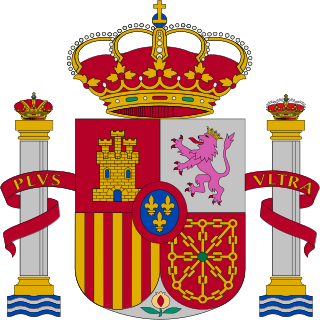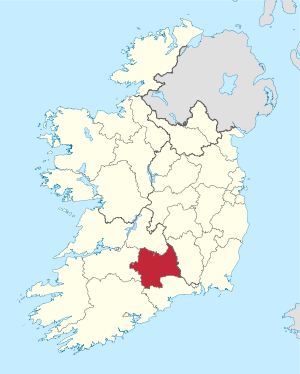
The National Assembly is the lower house of the bicameral French Parliament under the Fifth Republic, the upper house being the Senate. The National Assembly's legislators are known as députés, meaning "delegate" or "envoy" in English; etymologically, it is a cognate of the English word deputy, the standard term for legislators in many parliamentary systems.
Local government in Northern Ireland is divided among 11 single-tier districts known as 'Local Government Districts' and formerly known as district council areas (DCAs). Councils in Northern Ireland do not carry out the same range of functions as those in the rest of the United Kingdom; for example they have no responsibility for education, road-building or housing. Their functions include planning, waste and recycling services, leisure and community services, building control and local economic and cultural development. The collection of rates is handled centrally by the Land and Property Services agency of the Northern Ireland Executive.

Elections in Spain encompass four different types: general elections, regional elections, local elections, and elections to the European Parliament. General elections and regional elections are typically conducted at the conclusion of the national or regional legislative mandate, which usually spans four years since the previous election. However, early elections can be called in certain circumstances. On the other hand, local council elections and elections to the European Parliament follow fixed dates, although some local government bodies, such as provincial councils, are not directly elected. In most elections, a party-list proportional representation (PR) system is employed, while the Senate utilizes the plurality system.
In electoral systems, voter registration is the requirement that a person otherwise eligible to vote must register on an electoral roll, which is usually a prerequisite for being entitled or permitted to vote.
Romania elects on a national level a head of state – the president – and a legislature. The president is elected for a five-year term by the people. The Romanian Parliament has two chambers. The Chamber of Deputies has currently 330 members, elected for a four-year term by party-list proportional representation on closed lists. The Senate has currently 136 members, elected for a four-year term by party-list proportional representation on closed lists.

Elections in Portugal are free, fair, and regularly held, in accordance with election law.

Elections in Namibia determine who holds public political offices in the country. Namibia is a semi-presidential representative democratic republic. It runs direct elections every five years for the position of the president and seats in the National Assembly, and every six years for the Regional Councils and the distribution of seats in local authorities. The National Council is elected indirectly by the constituency councillors of Namibia's 14 regions.

Cork North-Central is a parliamentary constituency represented in Dáil Éireann, the lower house of the Irish parliament or Oireachtas. The constituency elects five deputies on the system of proportional representation by means of the single transferable vote (PR-STV).
The Administrative Panel is one of five vocational panels which together elect 43 of the 60 members of Seanad Éireann, the senate of the Oireachtas. The Administrative Panel elects seven senators.
Elections in Serbia are mandated by the Constitution and legislation. The President of the Republic, National Assembly, provincial (Vojvodina) and local assemblies are all elective offices. Since 1990, twelve presidential, fourteen parliamentary and ten provincial elections were held.
Hertfordshire County Council in England is elected every four years. Since the last boundary changes took effect in 2017 there have been 78 electoral divisions electing one councillor each.
There are four types of elections in Wales: elections to the House of Commons of the United Kingdom, elections to the devolved Senedd, local elections to community councils and the 22 principal areas, and the police and crime commissioner elections. In addition there are by-elections for each aforementioned election. Elections are held on Election Day, which is conventionally a Thursday. Three of these four types of elections are held after fixed periods; the exception is UK general elections, the timing of which is at the discretion of the prime minister of the United Kingdom. Senedd elections may be postponed to avoid elections to the UK parliament and Senedd coinciding with each other.
Shropshire Council elections are held every four years, and since 2009 74 councillors have been elected from 63 electoral divisions.
There are five types of elections in the United Kingdom: elections to the House of Commons of the United Kingdom, elections to devolved parliaments and assemblies, local elections, mayoral elections, and Police and Crime Commissioner elections. Within each of those categories, there may also be by-elections. Elections are held on Election Day, which is conventionally a Thursday, and under the provisions of the Dissolution and Calling of Parliament Act 2022 the timing of general elections can be held at the discretion of the prime minister during any five-year period. All other types of elections are held after fixed periods, though early elections to the devolved assemblies and parliaments can occur in certain situations. The five electoral systems used are: the single member plurality system (first-past-the-post), the multi-member plurality, the single transferable vote, the additional member system, and the supplementary vote.

The Trade Unionist and Socialist Coalition (TUSC) is a socialist electoral alliance in Britain. It was originally launched for the 2010 general election.

An election to all 24 seats on Fingal County Council took place on 5 June 2009 as part of the 2009 Irish local elections. Fingal was divided into 5 local electoral areas (LEAs) to elect councillors for a five-year term of office on the electoral system of proportional representation by means of the single transferable vote (PR-STV).

An election to Dublin City Council took place on 5 June 2009 as part of that year's Irish local elections. 52 councillors were elected from eleven local electoral areas (LEAs) for a five-year term of office on the electoral system of proportional representation by means of the single transferable vote (PR-STV).

An election to Kerry County Council took place on 5 June 2009 as part of that year's Irish local elections. 27 councillors were elected from five local electoral areas (LEAs) for a five-year term of office on the electoral system of proportional representation by means of the single transferable vote (PR-STV).

An election to all 23 seats on Waterford County Council took place on 5 June 2009 as part of the 2009 Irish local elections. County Waterford was divided into four local electoral areas (LEAs) to elect councillors for a five-year term of office on the electoral system of proportional representation by means of the single transferable vote (PR-STV).

An election to North Tipperary County Council took place on 5 June 2009 as part of that year's Irish local elections. 21 councillors were elected from four local electoral areas (LEAs) for a five-year term of office on the electoral system of proportional representation by means of the single transferable vote (PR-STV).











